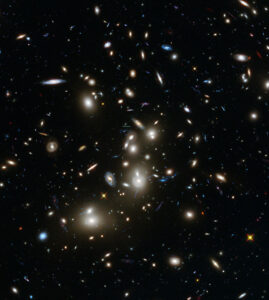 Worldview Bulletin is an evangelical Christian newsletter available on Substack and by email with over 6,000 subscribers produced by Chris Reese covering philosophy, theology, biblical studies, and apologetics. I have been subscribing for several years. Basic subscriptions are free, but paid subscribers receive exclusive content along with access to the full archive of past articles. The newsletter is endorsed by John Lennox, Michael Licona, Sean McDowell, J. P. Moreland, and Lee Strobel. Recent authors include Paul Copan, Douglas Groothuis, Craig S. Keener, Kenneth Richard Samples, Melissa Cain Travis, and Donald T. Williams. (Have I convinced you to subscribe yet?)
Worldview Bulletin is an evangelical Christian newsletter available on Substack and by email with over 6,000 subscribers produced by Chris Reese covering philosophy, theology, biblical studies, and apologetics. I have been subscribing for several years. Basic subscriptions are free, but paid subscribers receive exclusive content along with access to the full archive of past articles. The newsletter is endorsed by John Lennox, Michael Licona, Sean McDowell, J. P. Moreland, and Lee Strobel. Recent authors include Paul Copan, Douglas Groothuis, Craig S. Keener, Kenneth Richard Samples, Melissa Cain Travis, and Donald T. Williams. (Have I convinced you to subscribe yet?)
In a few days, the Worldview Bulletin will begin publishing my new six-part series on “Modern Worldviews and the Deity of Christ.” (Maybe you can see what I did there.) Each article can be read in about five to eight minutes. This is largely new material not found in The Incarnate Christ and His Critics: A Biblical Defense, which I co-authored with Ed Komoszewski, although the series discusses six of the approaches to Christology we critique in that book. Here are the titles of my six articles:
- Part 1: The Materialism of Skeptics and the Supernatural Deity of Christ
- Part 2: The Mysticism of Progressive Christians and the Unique Deity of Christ
- Part 3: The Polytheism of Mormonism and the Monotheistic Deity of Christ
- Part 4: The Finite Theism of Jehovah’s Witnesses and the Uncreated Deity of Christ
- Part 5: The Secondhand Theism of Islam and the Misunderstood Deity of Christ
- Part 6: The Rationalist Theism of Unitarianism and the Paradoxical Deity of Christ
Here is an excerpt from Part 3:
The difference between LDS theology and traditional Christian theology is not merely that Mormons view the three divine persons as three beings whereas the doctrine of the Trinity views them as one being. LDS theology is situated within an entirely different worldview in which God is not the absolute being to whom everything owes its very existence. Rather, “God” is a status that the three members of the Godhead attained (at different times and in different ways), that others (may have) attained before them, that at least one other being (heavenly Mother) and perhaps others have also attained, and that others—including us!—may attain after them. It is the world of space, time, and matter that is uncreated and truly eternal in its intrinsic nature; the Gods are simply the ultimate advanced beings in the world.